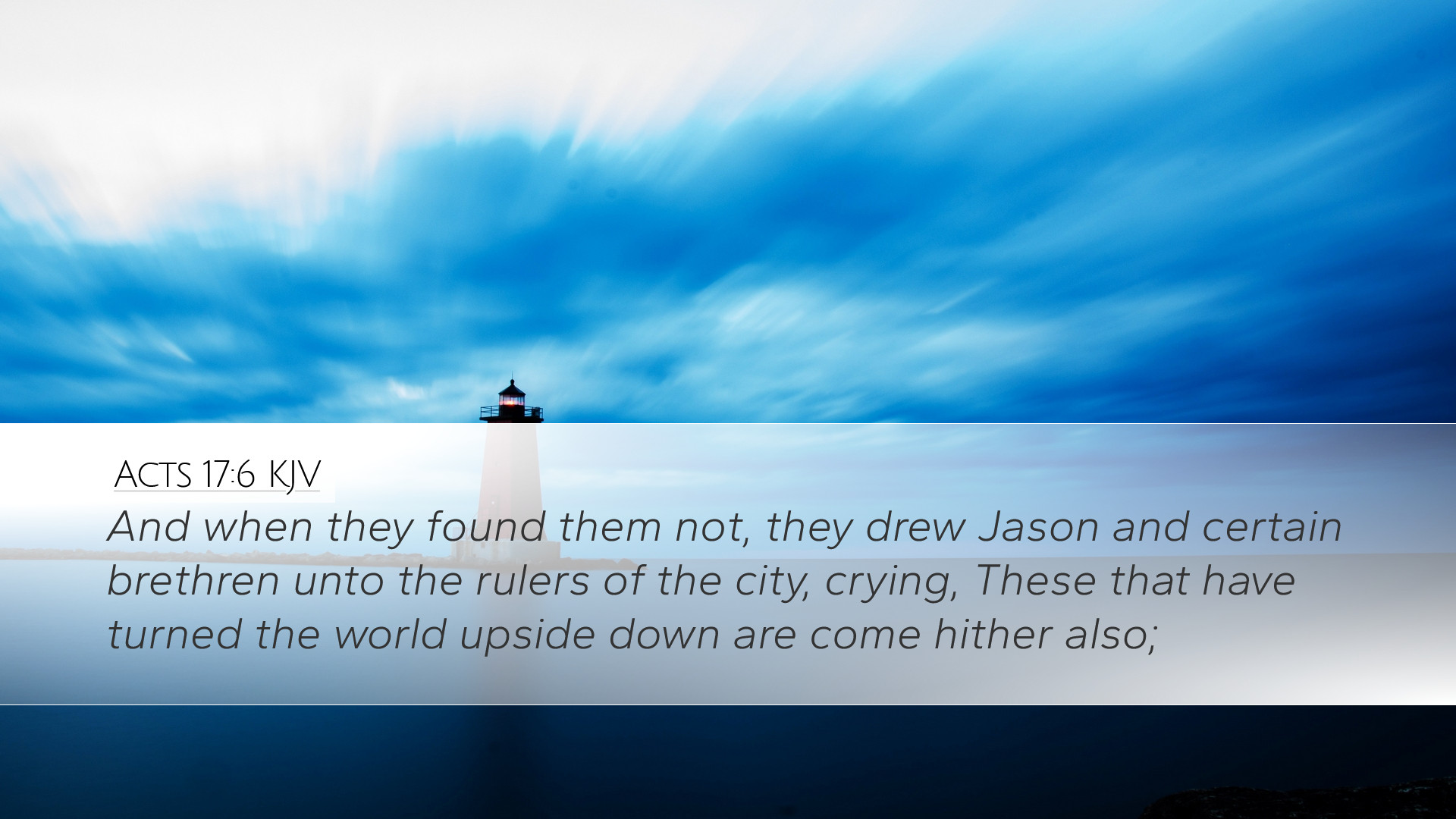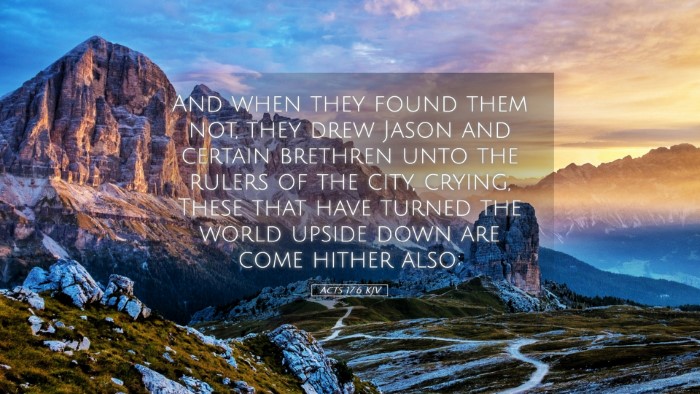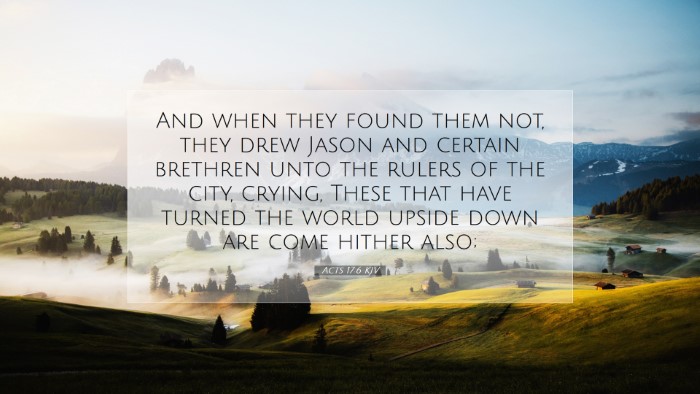Analysis of Acts 17:6
Verse: "And when they found them not, they drew Jason and certain brethren unto the rulers of the city, crying, These that have turned the world upside down are come hither also;"
Introduction
The verse Acts 17:6 presents a powerful moment in the early church's mission. In this passage, the evangelistic efforts of Paul and Silas in Thessalonica are met with opposition, illustrating the impact of the Gospel on both individuals and societies. The phrase "turned the world upside down" encapsulates the transformative nature of their ministry.
Contextual Background
The historical and cultural context of Thessalonica is crucial for understanding this verse. Thessalonica was a significant city in Macedonia, on a major trade route, which contributed to its diverse population but also to its political volatility. The conflict between the early Christians and the local authorities reveals the friction that arises when radical ideas challenge conventional norms.
Commentary Insights
Matthew Henry's Commentary
Matthew Henry emphasizes that the term "turned the world upside down" suggests a significant upheaval caused by the preaching of the Gospel. He notes that it implies an alteration of established norms and the introduction of a new order under Christ. Henry reflects on the role of Jason in this incident, pointing out that he served as a protector of the apostles and was thus drawn into the conflict, evidencing the societal repercussions of faith.
Albert Barnes' Commentary
Albert Barnes offers an interpretation that highlights the astonishment of the Jewish authorities at the transformative power of the early Christians. He points out that the accusation against Paul and Silas indicates their perceived threat to the status quo. Barnes notes the reaction of the populace to the apostles’ messages, seeing them as turning hearts and minds from traditional Jewish beliefs to the radical acceptance of Christ as Savior.
Adam Clarke's Commentary
Adam Clarke delves into the phrase “turned the world upside down,” arguing that it reflects the revolutionary nature of the Gospel. He points to the implications of such a transformation for society, suggesting that the world, dominated by sin and moral decay, was being challenged by a new standard of righteousness. Clarke also brings attention to the jealousy and fear exhibited by those in power, showcasing how the light of the Gospel exposed the darkness of their authority.
Theological Implications
This verse not only reveals the early church's challenges but also underscores key theological concepts:
- The Nature of the Gospel: The Gospel contains inherent transformative power, capable of changing lives and societies. Acts 17:6 embodies the idea that the proclamation of Jesus as King disrupts earthly kingdoms.
- Opposition to Truth: The reaction of the rulers illustrates the opposition truth often faces. It suggests that the light of the Gospel will provoke hostility, especially where deep-seated beliefs are challenged.
- Community and Solidarity: The involvement of Jason and other brethren signifies the communal aspect of faith. The repercussions faced by Jason reflect the cost of discipleship and the interconnectedness of the Christian community in bearing witness.
Practical Applications
For pastors and theologians, Acts 17:6 serves as a reminder of the transformative nature of the preaching of the Gospel. It challenges leaders to consider:
- Evangelistic Urgency: Understanding the profound impact of evangelism on cultures, believers today are called to boldly share their faith in a world that often opposes such messages.
- Preparing for Opposition: As believers seek to influence their communities positively, they must also be prepared for resistance and backlash, much like Paul and Silas experienced.
- Building Resilience: The struggle faced by early Christians encourages modern believers to foster resilience in their faith, knowing they are part of a larger story of God's kingdom advancing despite adversity.
Conclusion
Acts 17:6 paints a vivid picture of the early church's missionary zeal and the consequential upheaval it created within a hostile environment. Drawing from the rich insights provided by public domain commentaries, this verse serves as both an encouragement and a challenge to contemporary believers. May it inspire a commitment to evangelism that does, indeed, turn the world upside down for the sake of the Gospel.


